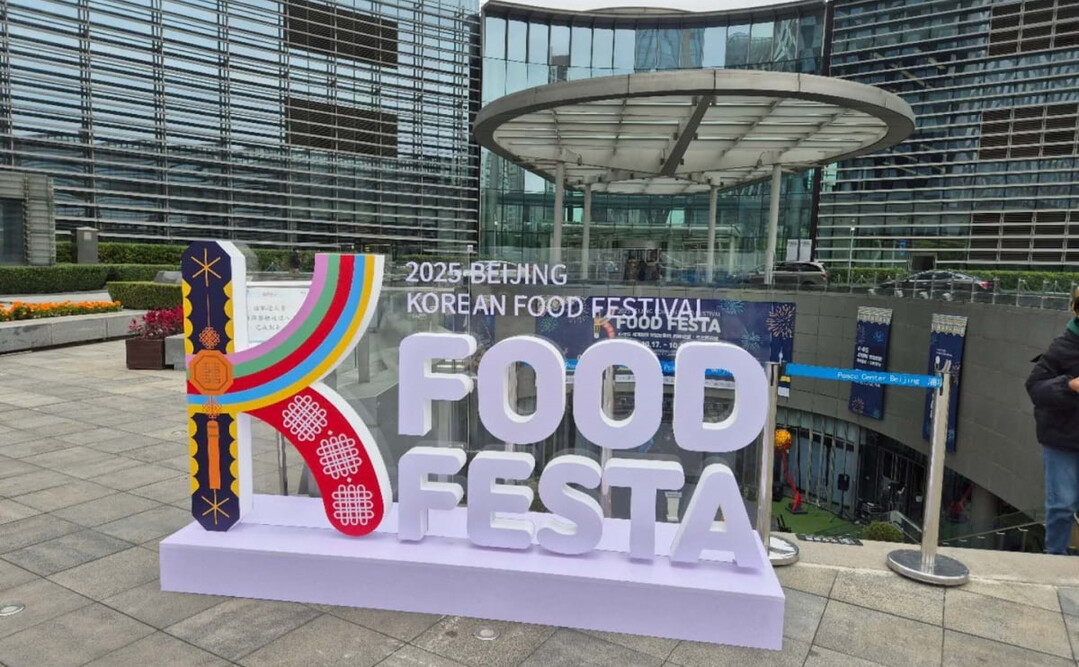
BEIJING – A vibrant "K-Food Festa" held in Beijing last week successfully showcased the growing global appeal of Korean cuisine and culture to the Chinese public, coinciding with a noticeable warming in South Korea-China relations. Hosted by the South Korean Embassy in China at the POSCO Center building in Wangjing from October 17th to 19th, the event was a strategic move to elevate the status of Korean food in the Chinese market and forge new export avenues for Korean agricultural and marine products.
The festival was not just a culinary showcase but a full immersion into Korean culture. Attendees were treated to dynamic demonstrations, including a Taekwondo performance, traditional Korean dance, and K-Pop routines at the opening ceremony, which drew enthusiastic crowds. The cultural zone also featured a traditional games area where visitors eagerly participated in activities like jegichagi (Korean hacky sack).
Highlighting the global 'K-Food' boom, particularly the popularity of street food like tteokbokki (spicy rice cakes) and kimbap (seaweed rice rolls), the festival aimed to capitalize on this international attention. A large contingent of over 50 local Korean restaurants and numerous Korean food companies set up booths. Major Korean brands like CheongKwanJang (ginseng products), HiteJinro (soju and beer), and Pulmuone (instant foods like hot dogs and pasta) participated. Local Korean eateries such as Myeongpum Yukga, Jahamun, Tomato, Cheollima Kimbap, and Jangchungdong Jokbal offered popular dishes like jeyuk-deopbap (spicy pork over rice) and gomtang (beef bone soup).
A dedicated traditional liquor zone provided tasting opportunities for 13 different types of Korean cheongju (traditional rice wine), while a ramen zone displayed products from Nongshim and Samyang. The event's reach was further amplified by Chinese online influencers, known as Wanghong, who conducted live broadcasts from the site, introducing Korean cuisine to their vast online audiences.
The event, co-organized by the Korea Agro-Fisheries & Food Trade Corporation (aT), the Korean Food Service Association in China, the Korean Association in Beijing, and the Beijing Korea Small and Medium Business Association, and sponsored by POSCO, underscored a robust effort to secure sales channels and discover new export items.
This proactive promotional push comes as the South Korean Embassy ends a nine-month hiatus in its ambassadorial post, with the new ambassador, Noh Jae-heon, having recently taken up his duties on October 16th. The embassy plans to intensify its promotional activities, including supporting Korean companies' participation in major Chinese food expos and preparing focused promotions of Korean food ingredients and companies in cooperation with Chinese local governments in November.
Kim Jin-dong, Economic Minister-Counsellor at the South Korean Embassy, remarked on the parallel global rise of Korean content and food culture. "While K-dramas and music have captured the hearts of people worldwide, Korean food is now captivating global taste buds," he stated, emphasizing China as the "most important partner" in this trend—a reliable companion for mutual cultural understanding and future collaboration.
China remains a crucial market for Korean agricultural exports, accounting for approximately 15% of South Korea's total $12 billion in global agro-food exports last year. Industry representatives expressed optimism, noting that consumer interest and preference for Korean food in China are rapidly increasing, an expectation further fueled by hopes for improved bilateral relations, possibly triggered by a potential visit by Chinese President Xi Jinping during the upcoming APEC summit in Gyeongju. The successful K-Food Festa marks a significant step in embedding Korean culinary culture deeper into the Chinese market.
[Copyright (c) Global Economic Times. All Rights Reserved.]




























